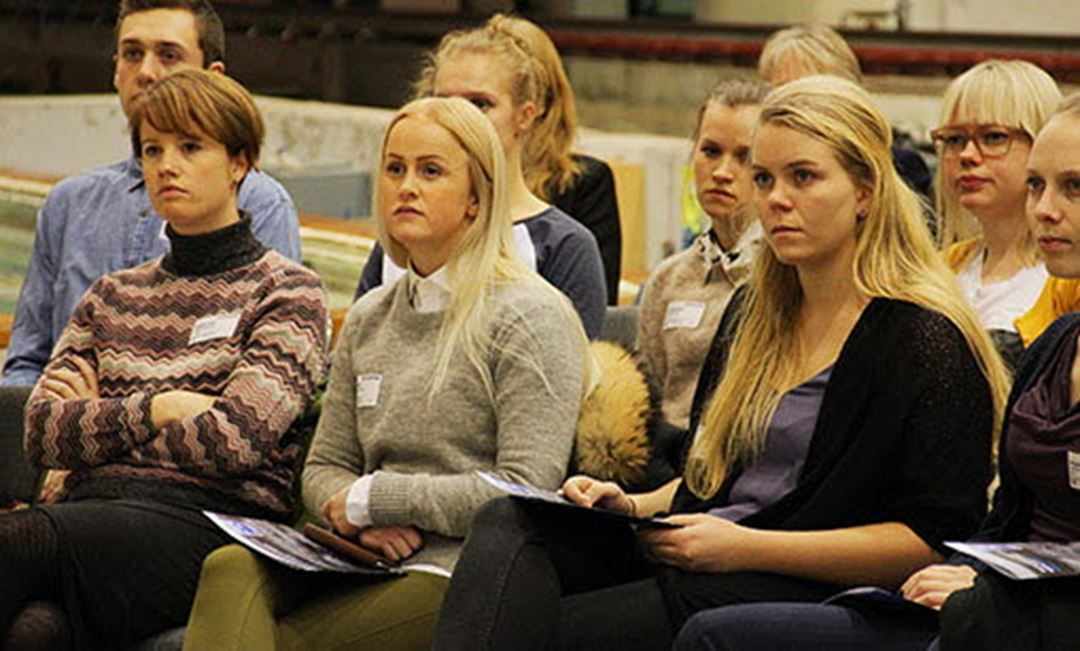"I am a supporter of quotas. There are still relatively few female managers, and I think that quotas are one means of raising the proportion of women in such positions. In its time, the government of Gro Harlem Brundland included the highest ever proportion of women ministers, which showed that this is quite feasible. Quotas for positions in management can act in the same way," says Unni Steinsmo, former President of SINTEF.
The youngest member of the panel was Vår Kjærnes, an NTNU student at MARINTEK. Kjærnes wants women who already have power to make use of it.
"I think that it will take time to raise the proportion of women who work in technology companies. But it is very much up to each individual woman and her attitude to her work and her career. However, I hope that those women who are already in positions of power will use their influence to open doors to other women," says Kjærnes.

Steinsmo headed SINTEF for 11 years. MARINTEK's vice-president, Beate Kvamstad-Lervold, has led the research company for almost a year, and she greatly enjoys her new role. At first, she had no intention of applying for the job, but changed her mind after a chat with MARINTEK's director of human resources.
"We are finding female top-level managers and women in positions of power more and more often. I don't know whether I would have been leading this institute today if our HR director had not been a woman who was actively trying to get more women into its management group. It was she who persuaded me to apply for the job, and I am glad that I grasped the opportunity. It is important to have more women in central positions, as the effects will gradually spread throughout the organisation," believes Kvamstad-Lervold.
The three formidable women came together to talk about leadership in the future at a Geek Girl Dinner at MARINTEK. More than 40 attendees, most of them women, listened attentively to the discussion, which was held in the Institute's Ship Model Tank.
"I believe that it is vital for technology companies to recruit more female leaders. This is a matter of diversity. Women and men communicate, and often think, in different ways. This is what makes it important to have both genders well represented throughout the organisation, including in management," says Steinsmo, who herself has never encountered any gender-based opposition.
"I have always worked in predominantly masculine work-places, so I don't know what it is like to work in place where women dominate. When I started to work at SINTEF, I was one of only two women >> in an academic position. When the other one moved on, I was the only one left. I have always felt that I was welcome her," she says with a smile.

As a top-level leader for 11 years and a SINTEF manager for 30, Steinsmo has been involved in hiring many other managers. She believes that it is essential that both men and women should be involved when people are being appointed.
"Women and men communicate in different ways. I think that part of the challenge is that men do not understand just how women communicate differently from men about their abilities."
"Can you go into a bit more detail here?"
"I have hired many of SINTEF's managers // leaders. Looking for a leader is actually an incredibly difficult process, and you want to be quite sure that you are making the right choice, so it is often easier to feel sure about people you know and understand than those that you don't know or understand so well," says Steinsmo.
The proportion of female engineering students has risen dramatically in the course of the past few years, largely as a result of NTNU's targeted recruitment efforts. Steinsmo believes that in the long run, this will have an effect on the number of women who lead technology companies.
"The choice of good candidates is much greater today than it was when I started out in management. I think this will have a positive effect in the long run," she adds.

